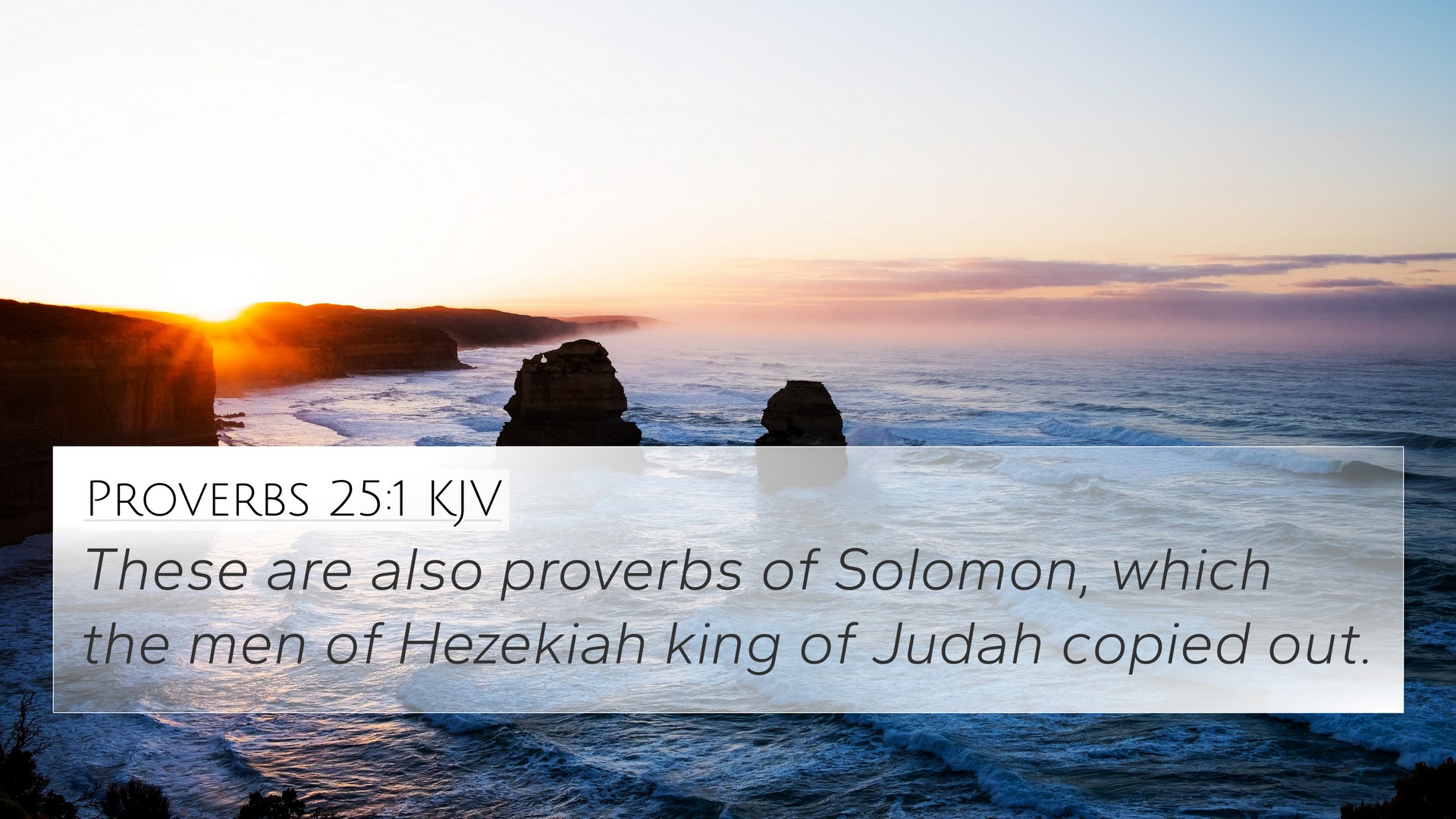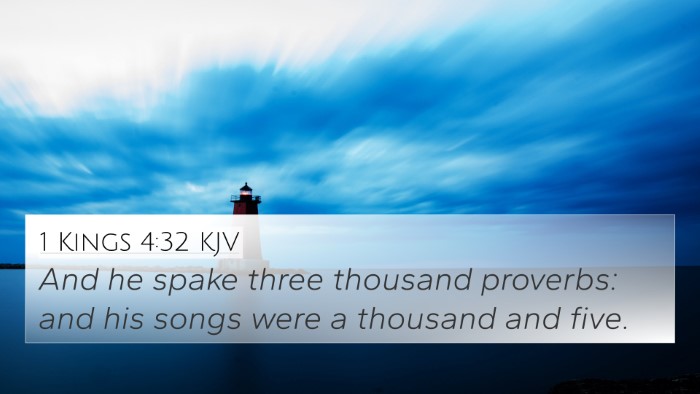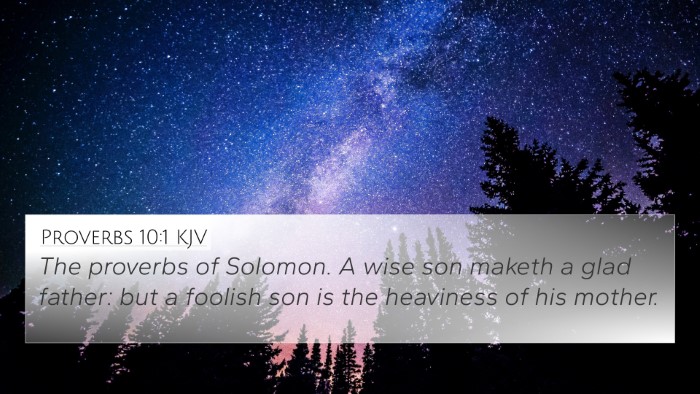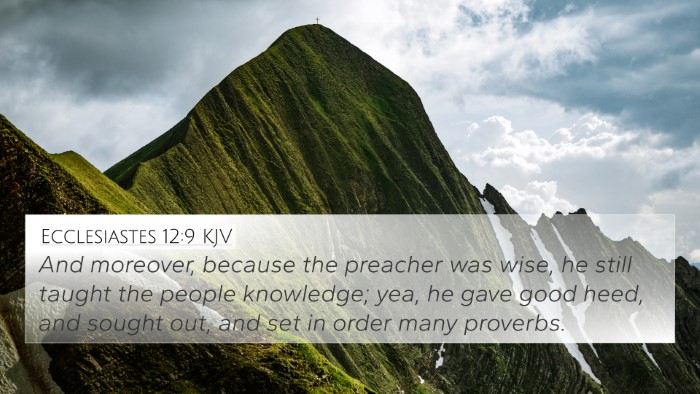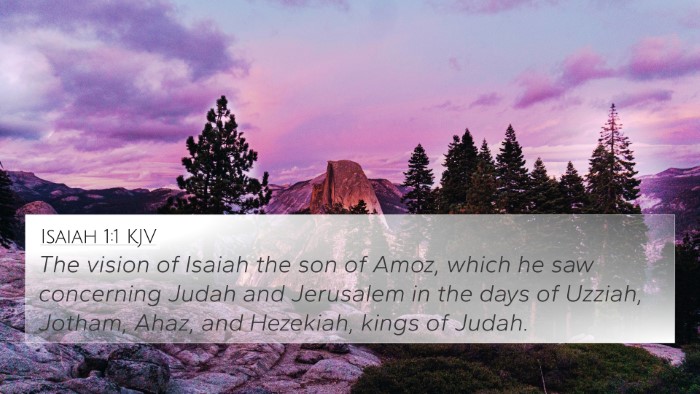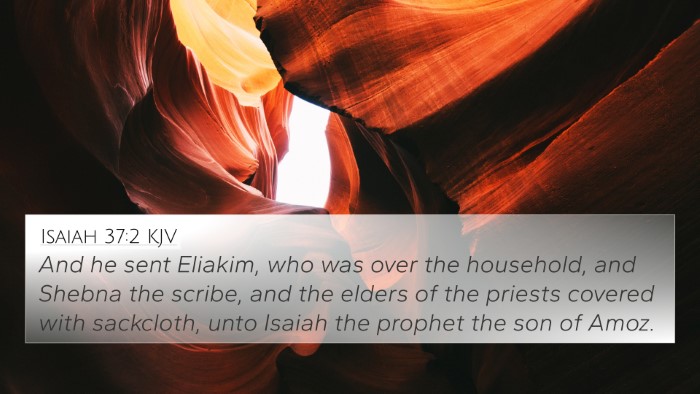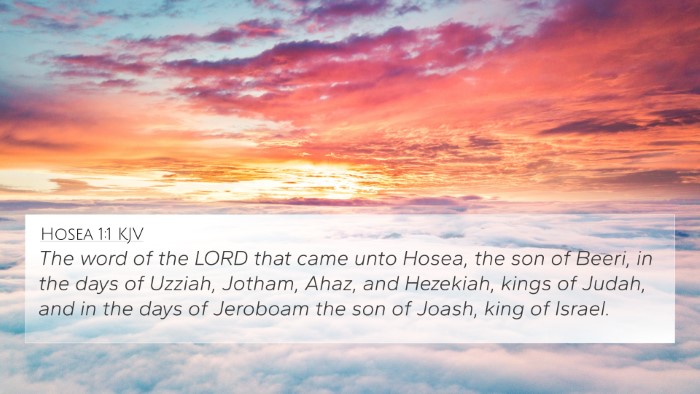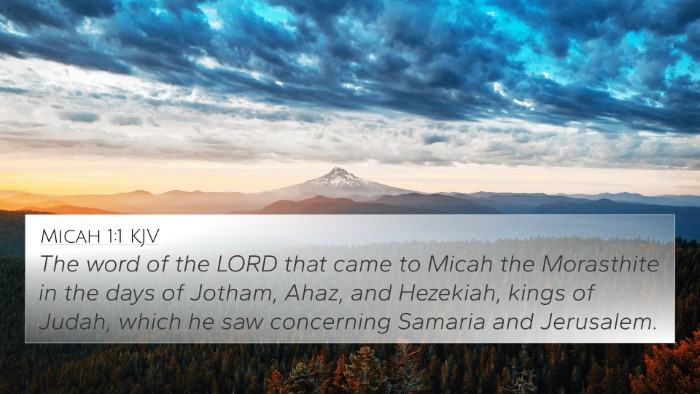Insights on Proverbs 25:1
Bible Verse: Proverbs 25:1 - "These are also proverbs of Solomon, which the men of Hezekiah king of Judah copied."
Understanding Proverbs 25:1
Proverbs 25:1 serves as an introductory statement for the collection of proverbs that follow in this chapter. It highlights the importance of Solomon's wisdom and the ongoing relevance of these teachings, even centuries after his reign. This verse indicates that the wisdom of Solomon was valued highly enough to be preserved and passed on by later leaders, suggesting a legacy of wisdom that transcends generations.
Historical Context
This verse places Solomon in a historical framework, where King Hezekiah's officials recognized the value of Solomon's teachings. The men of Hezekiah took efforts to compile these proverbs, showcasing an act of reverence and the desire for continued wisdom in governance and personal conduct.
Commentary Insights
- Matthew Henry: Henry emphasizes that the collection signifies the importance of wisdom in leadership and daily life. The transmission of these proverbs suggests a dedication to learning and moral fortitude.
- Albert Barnes: Barnes points out that this verse marks a transition, reflecting how ancient wisdom can inform contemporary decision-making. He underscores the academic efforts of Hezekiah’s court to preserve this wisdom.
- Adam Clarke: Clarke interprets this verse as an acknowledgment of Solomon's unparalleled wisdom. The verse highlights collaboration between past and present in the pursuit of knowledge and moral insight.
Thematic Connections
This verse interlinks with various themes in the Bible, revealing the continuity of divine wisdom throughout scripture. This continuity can be examined in both Testaments, providing rich soil for further exploration of biblical wisdom literature.
Bible Verse Cross-References
To deepen the understanding of Proverbs 25:1, consider the following related scripture:
- Proverbs 1:1-6: Establishes the purpose of proverbs and the importance of wisdom.
- 1 Kings 4:32-34: Reflects on Solomon's wisdom and understanding, illustrating the source of these proverbs.
- Ecclesiastes 12:9-10: Suggests that the wise man seeks to impart knowledge, similar to the efforts of Hezekiah's men.
- Isaiah 38:9: Highlights Hezekiah in context, adding historical weight to the importance of preserving wisdom.
- Wisdom of Solomon 1:1: (Apocryphal) Celebrates the pursuit and preservation of wisdom.
- Psalm 78:1-4: Speaks of declaring wise sayings and the importance of stories in teaching.
- James 1:5: Encourages seeking wisdom from God, connecting to the divine source of Solomon's proverbs.
- Proverbs 10:31-32: Contrasts the speech of the righteous with the speech of the wicked, emphasizing wise communication.
- Colossians 3:16: Encourages the community to share wisdom through teaching and admonishing each other, paralleling Solomon’s intent.
- Proverbs 4:7: Touts wisdom as the principal thing, advocating for its pursuit above all.
Connections Between Bible Verses
The relationships between these verses illustrate the interconnectedness of biblical wisdom and the enduring legacy of Solomon’s teachings. From the leadership lessons in Proverbs to the thematic parallels in the New Testament, each verse offers insights into the broader narrative of scripture.
Conclusion
In summary, Proverbs 25:1 encapsulates the significance of Solomon's wisdom as a foundational element for both individual and communal life. The efforts of Hezekiah’s men to record these sayings indicate a recognition of their value that extends beyond mere historical interest into the realm of ongoing practical application. By exploring related verses, one can appreciate the depth of wisdom offered throughout the Bible and its relevance to modern life.
